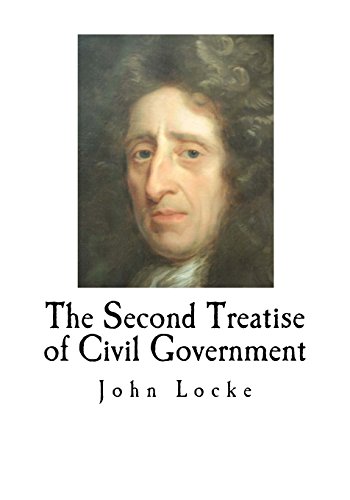The Second Treatise of Civil Government - Softcover

Zu dieser ISBN ist aktuell kein Angebot verfügbar.
Alle Exemplare der Ausgabe mit dieser ISBN anzeigen:
Reseña del editor:
The Second Treatise of Civil Government by John Locke John Locke FRS (29 August 1632 – 28 October 1704) was an English philosopher and physician, widely regarded as one of the most influential of Enlightenment thinkers and commonly known as the "Father of Liberalism". Locke defines the state of nature thus: "To properly understand political power and trace its origins, we must consider the state that all people are in naturally. That is a state of perfect freedom of acting and disposing of their own possessions and persons as they think fit within the bounds of the law of nature. People in this state do not have to ask permission to act or depend on the will of others to arrange matters on their behalf. The natural state is also one of equality in which all power and jurisdiction is reciprocal and no one has more than another. It is evident that all human beings – as creatures belonging to the same species and rank and born indiscriminately with all the same natural advantages and faculties – are equal amongst themselves. They have no relationship of subordination or subjection unless God (the lord and master of them all) had clearly set one person above another and conferred on him an undoubted right to dominion and sovereignty." The work of Thomas Hobbes made theories based upon a state of nature popular in 17th-century England, even as most of those who employed such arguments were deeply troubled by his absolutist conclusions. Locke's state of nature can be seen in light of this tradition. There is not and never has been any divinely ordained monarch over the entire world, Locke argues. However, the fact that the natural state of humanity is without an institutionalized government does not mean it is lawless. Human beings are still subject to the laws of God and nature. In contrast to Hobbes, who posited the state of nature as a hypothetical possibility, Locke takes great pains to show that such a state did indeed exist. Actually, it still exists in the area of international relations where there is not and is never likely to be any legitimate overarching government (i.e., one directly chosen by all the people subject to it). Whereas Hobbes stresses the disadvantages of the state of nature, Locke points to its good points. It is free, if full of continual dangers (2nd Tr., §123). Finally, the proper alternative to the natural state is not political dictatorship/tyranny but democratically elected government and the effective protection of basic human rights to life, liberty, and property under the rule of law.
Biografía del autor:
John Locke
„Über diesen Titel“ kann sich auf eine andere Ausgabe dieses Titels beziehen.
- VerlagCreateSpace Independent Publishing Platform
- Erscheinungsdatum2016
- ISBN 10 1539004708
- ISBN 13 9781539004707
- EinbandTapa blanda
- Anzahl der Seiten88
- Bewertung
(Keine Angebote verfügbar)
Buch Finden: Kaufgesuch aufgebenSie kennen Autor und Titel des Buches und finden es trotzdem nicht auf ZVAB? Dann geben Sie einen Suchauftrag auf und wir informieren Sie automatisch, sobald das Buch verfügbar ist!
Kaufgesuch aufgeben
